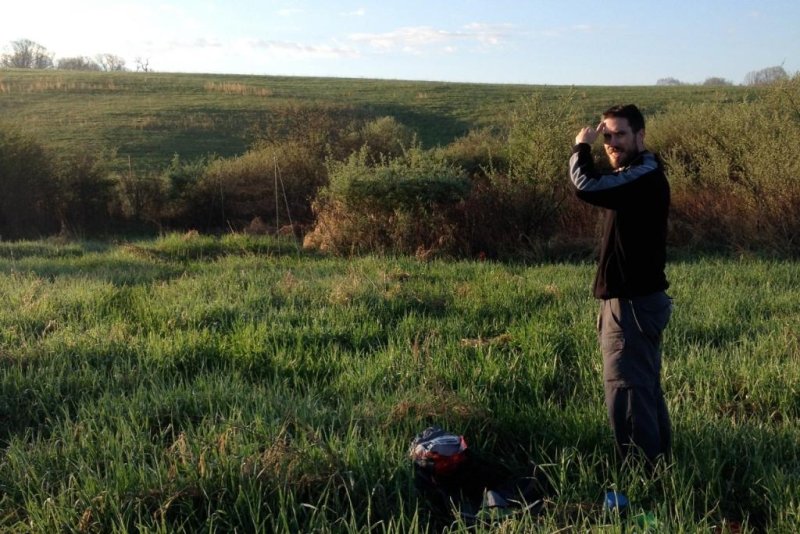Researcher Scott Davies measures territorial aggression exhibited by local birds when the song of an intruder is played in suburban and rural settings. Photo by Virginia Tech
BLACKSBURG, Va., July 15 (UPI) -- City life demands a more aggressive disposition -- for humans and for bids. The same goes for suburban life.
A new study found birds living among suburban environs exhibit higher levels of territorial aggression than their peers from the country. The closer to the city, the angrier the birds.
"A possible reason for this is that these birds have less space but better resources to defend," Scott Davies, a biological sciences postdoctoral associate at Virginia Tech, said in a news release. "Living near humans provides better food and shelter, but it also means more competition for these limited resources."
Researchers measured levels of territorial aggression among song sparrows at rural and urban sites in southwestern Virginia's New River Valley. The campuses of Virginia Tech and Radford University served as suburban sites, while rural birds were observed on country farms and in parks.
All of the observed birds responded to the song of an intruder, but suburban birds responded more quickly and aggressively.
Researchers aren't yet sure what exactly explains the difference in disposition, but say understanding the effects of urbanization on animals is important for the future of wildlife management, as populations and cities grow.
"Predicting the impact that human population growth will have on wildlife requires studying the species that adjust and persist in human-impacted habitats," said Kendra Sewall, an assistant professor of biological sciences at Virginia Tech. "Suburban sprawl is a primary form of human habitat change and though many species can survive in our backyards, their behavior and physiology may change to cope with shifts in resources and with new disturbances."
The research was published this week in the journal Biology Letters.















